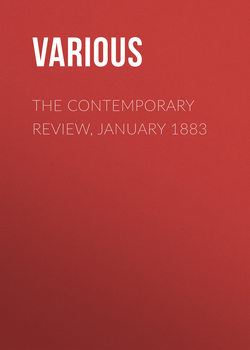Читать книгу The Contemporary Review, January 1883 - Various - Страница 5
HAMLET: A NEW READING
ОглавлениеThere is a sense in which the stage alone can give the full significance to a dramatic poem, just as a lyric finds its full interpretation in music; but we prefer that a song of Goethe or Shelley should wait for its music, and in the meantime suggest its own aërial accompaniment, rather than be vulgarized in the setting. And even when set for the voice by a master, although there is a gain in as far as the charm is brought home to the senses, yet there is a loss in proportion to the beauty of the song; for if it is delicate the finer spiritual grace departs, and if it is ardent the passion is liable to scream, and, above all, there is a vague but appreciable loss of identity; so that on the whole we please ourselves best with the literary form. There is the same balance of gain and loss in the relation of the drama to the stage. The gain is in proportion to the excellence of the acting, and the loss in proportion to the beauty o£ the play. It is well then that, as the lyric poem no longer demands the lyre, the poetical drama has become, though more recently, independent of the stage. Each has its own perspective of life, its own idea of Nature, its own brilliancy, its own dulness, and finally its own public; and notwithstanding the objections of some critics, it will soon be admitted that a work may be strictly and intrinsically dramatic, and yet only fit for the study—that is, for ideal representation. For there is a theatre in every imagination, where we produce the old masterpiece in its simplicity and dignity, and where the new work appears and is followed in plot and action, and conflict of feeling, and play of character, and rhythm of part with part, if not with as keen an excitement, at least with as fair a judgment, as if we were criticizing the actors, not the piece. And were all theatres closed, the drama—whether as the free and spontaneous outflow of observation, fancy, and humour, or as the intense reflection of the movement of life in its animation of joy and pain—would remain one of the most natural and captivating forms in which the creative impulse of the poet can work. When we look at its variety and flexibility of structure—from the lyrical tragedy of Æschylus to a "Proverbe" of De Musset; at its diversity of spirit—from the exuberance of a comedy of Aristophanes and the caprice of an Elizabethan mask to the serenity of "Comus" and Tasso, and the terror of "Agamemnon" and "Macbeth;" at its range of expression—from, the full-toned Greek and English Iambic to the plain but sparkling prose of Molière, and from that again to the intricate harmonies of Calderon, Goethe, and Shelley; with its use of all voices, from vociferous mob to melodious daughters of Ocean, and its command of all colour, from the gloom of Medea to the splendour of Marlowe's Helen,—it is a small matter to remember the connection of work or author with the stage—how long they held it, how soon they were dispossessed, how and at what intervals and with what uncertain footing they returned. We do not accept them because they were popular in their day, and we do not reject them because they are not suitable to ours. They have lost no vivacity or strength or grace by their exclusion from the stage and their exile to literature—to that permanent theatre for which the poet, freely using any and every form of dramatic expression, should now work.
"There is the playhouse now, there you must sit....
For 'tis your thoughts that now must deck our king."
The relevancy of these remarks, as an introduction to a study of one of Shakespeare's plays, will presently appear.
